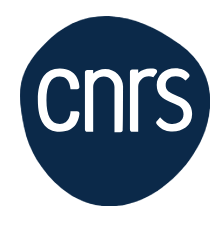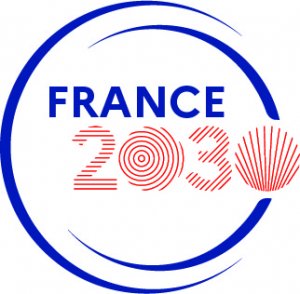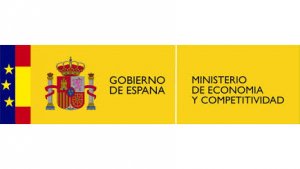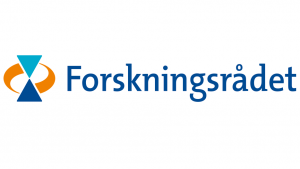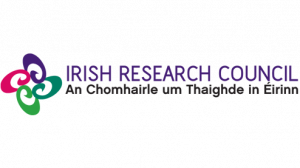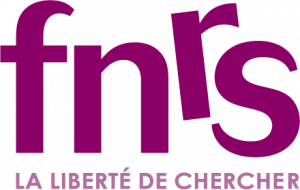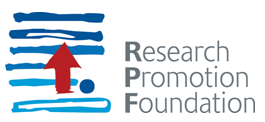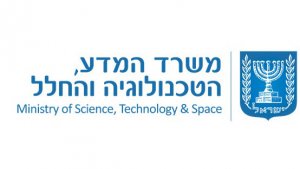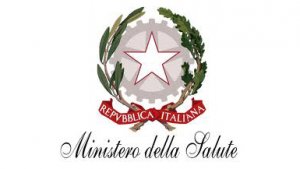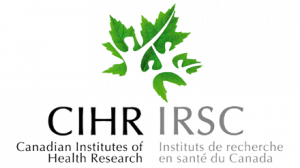GENDER-NET Plus Joint Call on Gender and UN Sustainable Development Goals
The Programme is Now Closed
The call invites interdisciplinary applications exploring gender effects and dimensions in research topics relating to one or more of the following Sustainable Development Goals (SDGs): SDG 3 Good health and well-being, SDG 9 Infrastructure, Industrialization and Innovation, and SDG 13 Climate Action.
Background to the call
Despite efforts to reduce fragmentation across the European Research Area (ERA), the European scientific system is still facing challenges in achieving gender equality and gender mainstreaming in research and innovation. In this context, and in line with ERA policy goals and national contexts, the GENDER-NET Plus ERA-NET Cofund was launched September 15, 2017 and will run until 2022. The consortium of 16 committed organisations aims to strengthen transnational collaborations between research programme owners and managers, provide support to the promotion of gender equality through institutional change, and to promote the integration of sex and gender analysis into research content and funding programmes.
The joint co-funded call for proposals is part of a toolbox of activities launched to help achieving these aims. The present call is the only co-funded call for proposals that will be opening within GENDER-NET Plus. It will be followed by activities that include
- i) designing and implementing transnational actions on the promotion of gender equality through institutional change and the integration of sex and gender analysis into research,
- ii) mappings and analyses on the promotion of gender equality in research and innovation, and
- iii) a joint assessment of gender differences and bias in access to research grants in order to define and develop appropriate conditions for promoting equal opportunities in research funding.
The GENDER-NET Plus is a continuation of the GENDER-NET ERA-NET research policy initiative, which was active from 2013 to 2016, addressing challenges facing European research institutions in achieving gender equality in research and innovation.
All parts of the GENDER-NET Plus initiative will prioritize new, innovative, comparative, critical and interdisciplinary approaches and methods in order to produce new knowledge, meet the targets and comply with the aims of the initiative.
Introduction
The integration of sex and gender analysis into research content gives new knowledge and insights, which ultimately will benefit both women and men. This joint co-funded call invites research integrating a gender dimension in addressing urgent societal challenges. GENDER-NET Plus has chosen to take the United Nations Sustainable Development Goals (SDGs) as a point of departure for this call. The 2030 Agenda for Sustainable Development was adopted by the UN member states on September 28, 2015. Replacing the Millennium Development Goals (MDGs) which were operational from 2000 to 2015, the SDGs aim to promote human dignity and prosperity while safeguarding the earth’s vital biophysical processes and ecosystem services. Broadening the scope of the MDGs, the SDGs are founded in a commitment to realising human rights, and acknowledge the link between inequality, marginalisation and poverty (cf. Esquivel & Sweetman 2016).
The SDG 5 explicitly addresses gender equality and women’s rights. The UN 2017 Report Progress towards the Sustainable Development Goals notes that “gender inequality persists worldwide, depriving women and girls of their basic rights and opportunities”. It is further noted that “Achieving gender equality and the empowerment of women and girls will require more vigorous efforts, including legal frameworks, to counter deeply rooted gender-based discrimination that often results from patriarchal attitudes and related social norms.” Apart from targets defined under the SDG 5, gender analysis and gender issues are clearly articulated in other SDGs.
Efforts to achieve the Sustainable Development Goals and Targets are set in the context of societal efforts of adaptation and mitigation of climate change, effectively influencing every aspect of the society, biosphere and health and well-being of the population. It is also set in the context of the ongoing “Fourth Industrial Revolution”, which may fundamentally alter the way we live, work, and relate to one another by diminishing the differences between the physical, digital, and biological sphere. Potentially, the development of the industrial revolution may raise global income levels and improve the quality of life for populations around the world. At the same time, it may widen the gap between countries, cities, populations, groups and individuals that are able to take advantage of the positive effects, and those who cannot, leading to increased inequality and marginalisation. The World Economic Forum concludes that, in addition to being a key economic concern, inequality represents the greatest societal concern associated with the Fourth Industrial Revolution.
Scope of call and expected impact
GENDER-NET Plus invites applications that in the above outlined context, address and explore interactions and interdependencies explicitly between SDG 5 Gender Equality and one or more of the following SDGs: SDG 3 Good health and well-being, SDG 9 Infrastructure, Industrialization and Innovation, and SDG 13 Climate Action, as outlined in the call topics below. Applicants may choose to address one or more of the outlined topics. For any chosen topic, an interdisciplinary approach is needed, addressing the interplay between society–technology–culture. Research that addresses the social gender dimension is strongly encouraged.
The GENDER-NET Plus call promotes the integration of sex and/or gender analysis in research contents, with the specific aim to contribute to the integration of sex and gender perspectives in all applicable aspects of addressing societal challenges, by all actors and in all parts of society.
The maximum duration of the research projects is three years, and the recommended length is at least two years (liable to the specific rules of the partaking Funding Organisations, see Funding Organisation Rules).
SDG 3 Good health and well-being
A consideration of sex and gender is fundamental to ensure healthy lives and promote well-being for all at all ages. An individual’s sex (biological differences between males and females) as well as socially-constructed gender norms, roles and relations influence people’s susceptibility to different health conditions and diseases and affect their enjoyment of good mental, physical health and wellbeing. They also have a bearing on people’s access to and uptake of health services and on the health outcomes they experience throughout the life-course. Developing gender-responsive health programmes which are appropriately implemented is beneficial for men, women, boys, girls and gender-diverse people. Addressing gender inequality improves access to and benefits from health services. (UN SDG 3, WHO).
The present call invites research addressing the following three topics under SDG 3:
Topic 1.1. GENDER-BASED VIOLENCE
Specific challenge: Sexual- and Gender-Based Violence (SGBV) is a violation of human rights. It denies the human dignity of the individual and hurts human development. SGBV is largely rooted in individual attitudes that condone violence within the family, the community and the State. SGBV has been both a cause of forced displacement and a consequence of the breakdown of family and community structures that accompanies displacement. Sexual violence is also related to war and conflict. (UNHCR)
Scope: The topic invites both basic and applied research aiming to better understand and/or to tackle these challenges. Research can address, but need not be limited to, the following issues:
- Domestic violence, its causes and life-long consequences on health, work and economic outcome
- Trafficking, sexual and other types of exploitation
- Intersectional gender approaches to sexual/sexist violence and/or violence against LGBTQ people (lesbian, gay, bisexual, transgender/transsexual, queer/questioning)
Expected impact: The impact can be both within and outside academic research. Possible impacts can be to contribute to a better understanding of these challenges, and/or to contribute to policymaking, legislation, societal actions as well as preventive measures and interventions to tackle these challenges.
Topic 1.2. SEX, GENDER AND AGEING
Specific challenge: People are living longer. This development is fundamentally positive, but entails specific challenges. The share of people over 60 years old in the population is increasing and women generally have higher life expectancy than men. An individual’s sex and gender structure the entire life-cycle, from birth to old age. Gender relations influence access to resources and opportunities and shape life choices at every stage. The relevance of gender is both ongoing and cumulative – the different circumstances that shape the lives of women and men in old age are the outcome of the many different opportunities, challenges and constraints that have gone before. Thus, the sex and gender dimension is crucial in order to understand the different aspects and challenges of ageing. (The 1995 UN Beijing platform)
Scope: The topic invites both basic and applied research aiming to better understand and/or to tackle these challenges. Research can address, but need not be limited to, the following issues:
- Sex-and/or gender-related effects of aging on women, men and gender-diverse individuals
- Effects of sex and gender on health, socioeconomic status, quality of life and care
- Impact of new welfare technology on women, men and gender-diverse people
Expected impact: The impact can be both within and outside academic research. Possible impacts can be to contribute to a better understanding of these challenges, awareness raising actions, improved methods for monitoring and follow up, and/or to contribute to policymaking, interventions and treatments to prevent, mitigate and/or counteract these challenges.
Topic 1.3. SEX, GENDER AND HEALTH
Under the general heading of Sex, Gender and Health, this call topic aims at the following Specific challenge: Integration of a sex and gender dimension in both basic and applied health research on lifestyles, psychological or cognitive factors, quality of life and treatment in neurological disorders and communicable and non-communicable diseases.
Scope: The topic invites both basic and applied research aiming to improve our under standing and/or to tackle these challenges by integrating sex and gender dimensions. Research can address, but need not be limited to, the following issues:
- Life course approaches to identification of comorbidities and risk factors in individuals with congenital and acquired neurological disorders
- Personalized health approaches to prevention, diagnosis and treatment
- Gender considerations in health behaviour and health care services
Expected impact: The impact can be both within and outside academic research. Possible impacts can be to contribute to a better understanding of these challenges, and/or to contribute to policymaking, interventions, monitoring and follow up, diagnosing and treatments to improve health and well-being for everyone.
SDG 9 Infrastructure, Industrialization and Innovation
In order to achieve an inclusive and sustainable development, that includes and benefits both women and men, we need a better understanding of the role of gender in technology and innovation. Inclusive and sustainable industrial development is the primary source of income generation, allows for rapid and sustained increases in living standards for all people, and provides the technological solutions to environmentally sound industrialization. Technological progress is the foundation of efforts to achieve environmental objectives, such as increased resource and energy-efficiency. Without technology and innovation, industrialization will not happen, and without industrialization, development will not happen. (UN SDG 9)
The present call invites research on the following two topics under SDG 9:
Topic 2.1. GENDER AND NEW TECHNOLOGIES
Specific challenge: New technologies are crucial to address societal challenges. At the same time, a lack of understanding of the gender dimension can lead to new digital divides and gender bias.
Scope: The topic invites both basic and applied research addressing the sex and gender dimension of these challenges. Research could address, but need not be limited to, the following issues:
- Gender and Information and communications technology (ICT)
- Gender and Artificial Intelligence (AI)
- Gender and robotics
- Use of enabling technology to promote the empowerment of women
- Development of technology for special needs from a gendered perspective.
Expected impact: The impact can be both within and outside academic research. Possible impacts can be to contribute to a better understanding of these issues, awareness raising, and/or to contribute to policymaking, legislation, societal actions and interventions. Other impacts can be the development of products, services, and technical and social innovations addressing the issues from a sex and gender perspective.
Topic 2.2. GENDER IN ENTREPRENEURSHIP AND IN THE INNOVATION SYSTEM
Specific challenge: To achieve a sustainable development that includes and benefits both women and men, an understanding of the gender dimension in entrepreneurship and in the innovation system is required.
Scope: The topic invites both basic and applied research addressing the sex and gender dimension of entrepreneurship and in the innovation system. Research could address, but need not be limited to, the following issues:
- Gender and open innovation
- Gender approaches to entrepreneurship in technology-based companies
- Gender and skills (including technical and vocational) for entrepreneurship
- Innovation investor behaviour from a gendered perspective, i.e., how investor behaviour patterns influence women's ability to acquire funding and support.
- Women’s leadership in the field of technology innovation
Expected impact: The impact can be both within and outside academic research. Possible impacts can be to contribute to a better understanding of these issues, to promote women’s leadership, innovation by and for women and girls, and/or to contribute to policymaking and legislation as well as societal actions and interventions.
SDG 13 Climate Action
Climate change has a greater impact on those sections of the population, in all countries, that are most reliant on natural resources for their livelihoods and/or who have the least capacity to respond to natural hazards, such as droughts, landslides, floods and hurricanes. Women commonly face higher risks and greater burdens from the impacts of climate change in situations of poverty, and the majority of the world’s poor are women. Although women, as a group, in many countries have a lower climate impact and higher vulnerability towards climate change effects such as extreme weather events and related natural disasters, women’s unequal participation in decision-making processes compound inequalities and often prevent women from fully contributing to climate-related planning, policy-making and implementation. (The UN Framework Convention on Climate Change)
The present call invites research addressing the following topic under SDG 13:
Topic 3.1. GENDER DIMENSION IN CLIMATE BEHAVIOUR AND DECISION-MAKING
Specific challenge: Social and economic gender differences have a decisive impact on environment related footprints, values and attitudes. This also relates to questions concerning gender differences and equal participation at all levels of decision-making in political, economic and public life.
Scope: The topic invites both basic and applied research, to better understand and/or to tackle these challenges. Research could address, but need not be limited to, the following issues:
- Gender differences in behaviour patterns that result in environment related footprints
- Gender differences in participation and leadership in climate related decision-making at all levels in society
- Gender differences in attitudes towards environmental policies
Expected impact: The impact can be both within andout side academic research. Possible impacts can be to contribute to a better understanding of the gender aspects of the issues, e.g. relating to life choices, lock-in effects and distribution of power, and/or to promote policymaking and legislation, societal interventions and actions, and to contribute to women’s participation and leadership at all levels in society.
Funding model
The GENDER-NET Plus Funding Organisations (FOs) agree on launching a joint call and using a joint evaluation with national and regional funding and additional EC co-funding.
Indicative funding
The total EC contribution to the call should be around 3 015 000 € maximum, and can decrease depending on the actual use of the funds committed by the FOs. The total of the funds committed by every partners is 7 600 700 € at the time of the signature of the Consortium Agreement. Thus, the total budget of the call would be 10 615 373 € maximum, depending on the actual EC contribution and the actual Joint Call funding.
General Eligibility Requirements
Please note that it remains the applicant’s responsibility to check with their respective funding organisations for the most recent eligibility requirements.
Eligibility of applications
The eligibility of institutions, researchers, and costs, as well as complementary administrative requirements are subject to the national/regional regulations and legal frameworks applicable to each individual Party, as specified in the Funding Organisation Rules. Only transnational projects fulfilling the following conditions will be eligible for funding:
- Research applications to the GENDER-NET Plus Joint Call can be made by transnational Collaborative Research Projects (CRP). Each CRP must comprise at least three (3) eligible partners requiring financial support from funders from at least three (3) of the following countries: Austria, Belgium (Wallonia), Canada, Cyprus, Czech Republic, Estonia, France, Ireland, Israel, Italy, Norway, Spain, Sweden. Each partner must have a Principal Investigator (PI) considered eligible for funding by a GENDER-NET Plus funding organisation in that country, see Funding Organisation Rules. Each of the CRP is to have a designated Project Coordinator (PC) who is one of the PIs in the CRP.
- An Associate Partner (AP) is a partner that will participate in the research but will not be funded by the GENDER-NET Plus. The AP is not considered in the minimum number of three (3) partners mentioned above. The AP should demonstrate or provide a formal declaration to have secured its own funding for participation in the CRP. For each AP a letter of commitment must be submitted which specifies the contribution of the partner to the CRP. The contribution of these partners to the CRP’s knowledge exchange potential should be well integrated in the work plan. CVs of Associate Partners can be, but need not be, included in the proposal.
Please read carefully the eligibility requirements in the document “Funding Organisation Rules”. These rules applies to the partners in each participating country or region. If you have any queries, contact your respective GENDER-NET Plus Funding Organisation Contact Point(s) (listed in Funding Organisation Rules).
Eligibility of costs and budgeting principles
- The total budget requested from the GENDER-NET Plus must not exceed 1 Million EURO across all participating partners in the CRP. CRPs can have up to 36 months in duration. CRPs must start by March 1st, 2019 and finish by December 31st, 2021 at the latest. The estimated budget must be given in Euros and be tabulated according to the application template provided in the Electronic Proposal Submission System (EPSS). All costs must be eligible according to Funding Organisation Rules. Eligible costs will generally include direct costs such as employment costs (PC, PIs, and other Project Team Members, e.g. researchers, Ph.D. students, administrative personnel, etc.), travel and meeting costs, equipment and consumables, dissemination costs as well as the overheads, according to the Funding Organisation Rules. Please read the Funding Organisation Rules to verify the eligibility of specific budget items according to the rules of the funding organisations participating in the GENDER-NET Plus call. For any queries, please contact your Funding Organisation Contact Point.
- The funded CRPs will also be expected to engage in knowledge exchange activities regarding the outcomes of the CRPs. Thus, the cost for the participation at the GENDER-NET Plus mid-time workshop must be included in the travel cost estimates (subject to Funding Organisation Rules). The workshop will be a 1.5 day event taking place in Madrid. The PC of a funded CRP is required to participate.
- Recipients of GENDER-NET Plus funding are required to use Open Access publishing wherever possible (see Further Requirements). Costs related to Open Access publishing may be eligible for funding subject to the Funding Organisation Rules relevant to the partners in the CRP.
